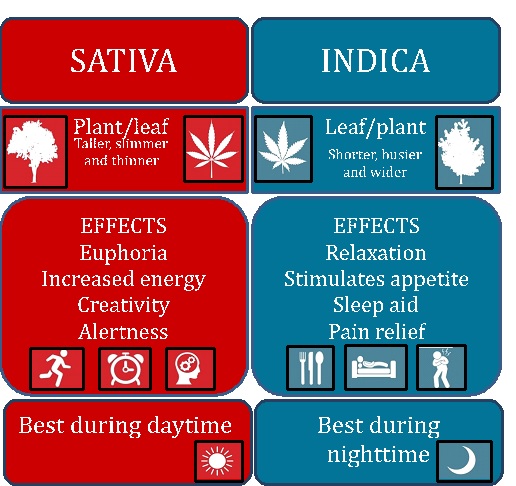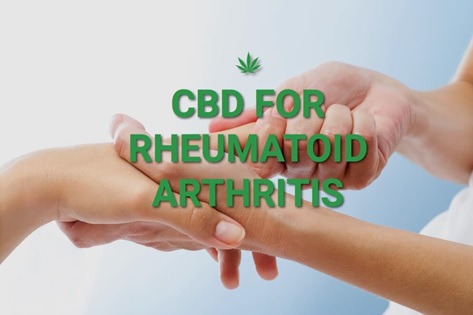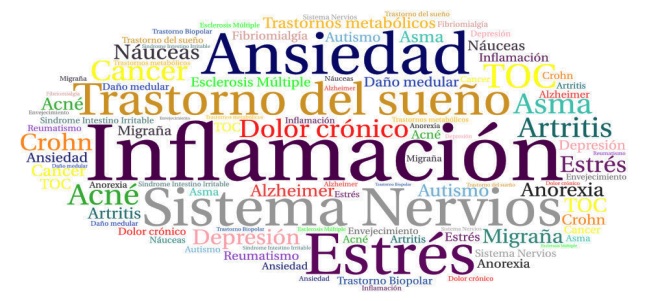Cannabis and Insomnia

Cannabis and Insomnia. How can medicinal cannabis contribute to alleviate insomnia?
It is well known that cannabis and insomnia has a good link. Cannabis, in addition of being a potent analgesic, can also be used to improve relaxation, both from a recreational and a medicinal point of view. More precisely, plants from the Cannabis sativa species stand out for their ability to relax and ease pain.
Good to know about Cannabis and Insomnia is the differences between the two species of cannabis, sativa and indica, beyond the morphological differences of the plant and the leaves, can be found in their different composition and the mechanisms of action they elicit.
One of the main differences lies in how they influence the energy and productivity states. While the consumption of C. indica reduces the energy and increase relaxation, consumption of C. sativa produces the opposite effect, it increases creativity and productivity. Hence, it is recommended to consume C. indica during nighttime and their use is associated with the treatment of sleep disorders.

Effects of the different cannabis plants. Modified from: https://www.crescolabs.com/indica-vs-sativa
The properties of each cannabis plant are summarized in table 1 (no veig la table 1).
A study using Sativex, a commercial solution of cannabinoids at a 1:1 ratio of THC and CBD, administered orally with a sprayer in a phase III clinical trial, showed a marked improvement in subjective sleep parameters and the quality of sleep upon consumption of cannabinoids: between 40-50% of the patients achieved good or very good sleep quality. Additional studies using synthetic cannabinoids, such as dronabinol or nabilone, for the treatment of obstructive sleep apnea and insomnia have shown that nabilone effectively reduces nightmares caused by post-traumatic stress. Although these products are effective, it is usually recommended to use the natural product instead, or extracted essences or oils from the plant itself, in different formats (pills, capsules, chewing gum, oils, etc.).
In post-traumatic stress and anxiety related disorders (to know more please see cannabis and anxiety) that diminish the ability to concentrate and fall asleep, it has been shown that the administration of CBD oil together with pharmacological drugs reduce anxiety over time and increases the time and quality of sleep.
As previously described, THC is the psychoactive substance of cannabis, while CBD has not psychoactive properties. CBD is considered the cannabinoid with medicinal properties that has no side effects that may alter the patient’s consciousness. It has a wide spectrum of action due to the expression of its receptor in humans. The effects of CBD on sleep and wakefulness have recently been evaluated through the intraperitoneal administration of cannabinoids in a rat model. Results from such study conclude that the administration of CBD increases the length of sleep but it also increases, depending on the dose, REM latency (see stages of sleep).
Several studies also concluded that CBD not only modulates sleep but also wakefulness during daytime, since it activates certain zones of the brain such as the hypothalamus and the dorsal raphe nucleus, which are involved in alertness and wakefulness. Hence, CBD could be effective to maintain wakefulness in cases of drowsiness. In those situations with excessive drowsiness, it has been shown that, upon the administration of CBD during daytime, there is an increase in dopamine, a neurotransmitter known as the “happy hormone”, which is involved in the regulation of sleep as well as promotes the release of melatonin (sleep regulator, see below).
To corroborate these results in rodents, cannabinoids (THC and CBD) were administered to 8 healthy volunteers and the effects on wakefulness and sleep were monitored. In this study it was observed that a higher dose of THC caused drowsiness while a higher dose of CBD administered together with the THC dose neutralized the drowsiness effect, resulting in an increase of alertness and wakefulness. The mechanism by which this occurs is due to both cannabinoids binding the same receptors and the higher concentration of CBD blocking the binding of THC.

Picture obtained from: https://www.semana.com/vida-moderna/articulo/los-efectos-de-la-marihuana-sobre-el-sueno/413235-3
Another study analyzed the parameters of sleep in regular cannabis users, in order to check whether it is possible to achieve tolerance to the sedative effects of THC. They concluded that the chronic administration of high doses can result in tolerance and, thus, recommended careful monitoring and not using high doses during chronic treatment.
THC and CBD act similarly and have a similar physiological effect, since they resemble each other and, hence, they can be recognized by our receptors and have the same function as anandamide, the hormone that regulates pleasure and relaxation. A research study that administered anandamide (as well as its precursor) and measured sleep cycles, wakefulness, memory, locomotion and pain, showed that anandamide increases the length and quality of sleep, reducing wakefulness. It also consolidated and reinforced memory (a process that takes place during sleep) and modulated locomotion.
In summary, the effects of cannabis extracts increase and modulate nighttime sleep and daytime wakefulness. Cannabis and insomnia; CBD has, therefore, a therapeutic potential as a sleep modulator as well as to induce wakefulness that can be helpful in people with sleeping disorders.
What are the main sleep disorders?
The term sleep disorders is used to account for every situation and condition that difficult sleep, whether it is falling asleep or being able to rest during sleep, as well as other abnormal behaviors that alter sleep. There are more than 100 different causes that can result in a sleep disorder, but they can be classified in 4 groups:
Insomnia. A condition in which a person has difficulty falling and/or staying asleep. It can be a temporary or a chronic disorder.
Drowsiness or Hypersomnia. A condition in which a person cannot help falling asleep and thus is always tired. It can be related to thyroid conditions or fibromyalgia, mononucleosis, narcolepsy or obstructive sleep apnea.
Circadian rhythm sleep disorders. A condition in which a person has issues maintaining a regular sleep schedule, as there are continuous or occasional disruptions of the wake-sleep cycle. Melatonin is a very important hormone that helps us fall asleep and rest. It is secreted in a constant and rhythmic fashion depending on the light we receive. It is secreted when there is no light to help us fall asleep. This condition usually appears after suffering from jet lag, when we advance or delay our bedtime, or when working night shifts or rotating shifts.
Parasomnia or behavioral insomnia. A condition in which a person behaves in a way that prevents falling asleep or wakes up during sleep. It manifests with abnormal behaviors such as sleep terrors, recurrent nightmares, sleepwalking (somnambulism) and REM-related disorders (in which a person moves while sleeping).
Sleeping is of the outmost importance to humans. In fact, we can survive longer without eating than without sleeping. It is very important to maintain a constant sleep cycle. This biological or circadian rhythm is under the control of one hormone, melatonin, which is secreted rhythmically in the pineal gland according to the time of the day. The secretion of melatonin depends on the light-dark cycle (it is only synthetized when it is dark). If a good sleeping habit is achieved, melatonin is always secreted at the same time of the day (that is why during weekends we wake up at about the same time that we do to go to work). Since the production of melatonin is sensitive to light, it is recommended not to use cellular phones or similar devices at least half an hour before going to bed. Melatonin also plays a role as an antioxidant. It activates repair genes, consolidates memory and learning on a daily basis and regulates metabolism. This molecule alternates with cortisol, another hormone responsible for waking up (see the figure).
Levels of cortisol and melatonin during sleep and wakefulness. From: https://bovahealthandwellness.wordpress.com/2014/01/14/why-cant-i-sleep/
The figure shows how cortisol and melatonin levels alternate, cortisol being the predominant hormone during wakefulness and melatonin during sleep.
Another common recommendation to sleep better and fall asleep earlier would be to have tryptophan-rich food for dinner, since this amino acid is required to synthesize melatonin.
References
1-https://medlineplus.gov/spanish/ency/article/000800.htm
2-https://www.ncbi.nlm.nih.gov/pubmed/?term=Cannabis%2C+pain%2C+and+sleep%3A+lessons+from+therapeutic+clinical+trials+of+Sativex%2C+a+cannabis-based+medicine
3-https://www.ncbi.nlm.nih.gov/pubmed/23343597
4-https://www.ncbi.nlm.nih.gov/pubmed/16844117
5-https://link.springer.com/article/10.1007%2Fs11920-017-0775-9
6-http://cannabis-med.org/index.php?tpl=page&id=21&lng=es&sid=bd0318d77fb8ac1dcd17836314bb5c8d#sintomas
7-Nicholson AN, Turner C, Stone BM, Robson PJ. Effect of Delta-9-tetrahydrocannabinol and cannabidiol on nocturnal sleep and early-morning behavior in young adults. J Clin Psychopharmacol 2004;24(3):305?13.
8-https://www.ncbi.nlm.nih.gov/pubmed/15118485
9-https://www.cannabisreports.com/cannabis-studies/cannabis-for-insomnia
10-https://www.ncbi.nlm.nih.gov/pubmed/27768570
11-https://www.ncbi.nlm.nih.gov/pmc/articles/PMC4023456/
12-https://www.ncbi.nlm.nih.gov/pmc/articles/PMC1262744/
13-https://onlinelibrary.wiley.com/doi/abs/10.1111/j.1521-0391.2013.12003.x
14-https://www.researchgate.net/publication/13474027_Anandamida_modulates_sleep_and_memory_in_rats
Cannabis and Insomnia. Analyzed and discussed by Paula Pifarré, PhD. Cannabity Healthcare Scientific Collaborator.

 Sérum Facial con CBD – Aceite antienvejecimiento (Cannabidiol) 30ML
Sérum Facial con CBD – Aceite antienvejecimiento (Cannabidiol) 30ML 




Responses